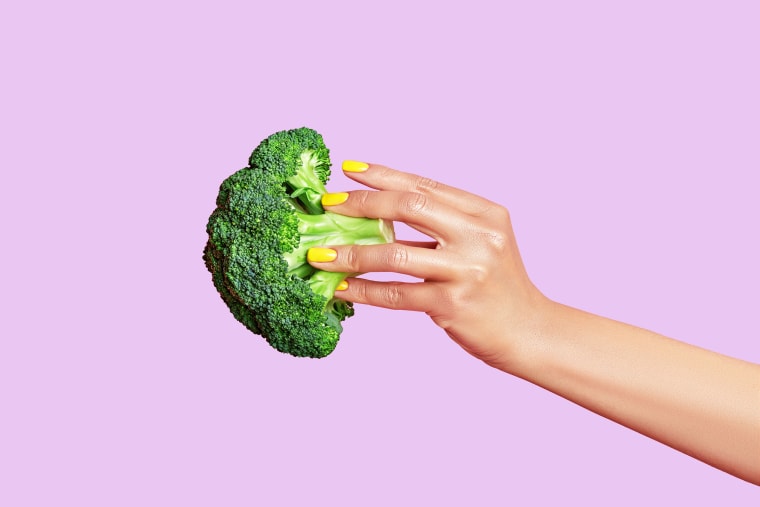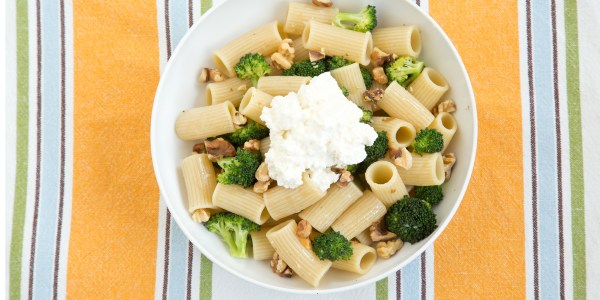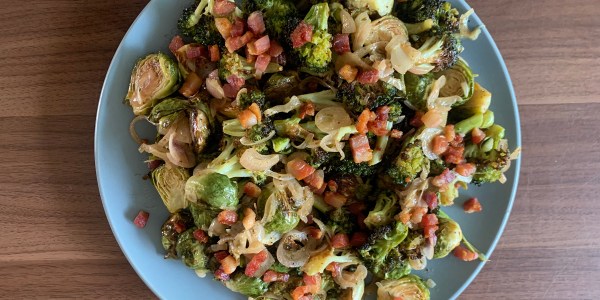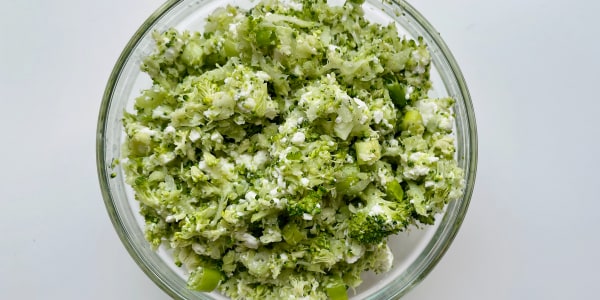Broccoli is a plant-based staple in the American diet. A recent survey of over 5,000 people listed it as the No. 2 favorite veggie among American adults. It’s versatile, inexpensive and a great addition to soups, stir-fries and pasta. Not only does it add flavor and texture to a dish, but broccoli has also many health benefits.
Broccoli is part of the cruciferous vegetable family, known for its robust antioxidant profile. This green flower — yes, broccoli is the flowering part of the plant — may protect against cancer, safeguard the heart and promote digestive health. And you can do so much more with broccoli than you may think, like grating it into a salad or making a broccoli pesto.
Let’s take a closer look at the nutrition and health benefits of broccoli and other frequently asked questions, like whether it has protein, and what’s the deal with broccoli sprouts.
Broccoli nutrition facts
According to the U.S. Department of Agriculture, one cup of raw broccoli has:
● 30 calories
● 2 grams protein
● 0 grams fat
● 5 grams carbohydrates
● 2 grams fiber
● 70 milligrams vitamin C (78% daily value
● 77 micrograms vitamin K (64% daily value)
The health benefits of broccoli
Broccoli has many nutritious components, but the research surrounding broccoli focuses on glucosinolates, which are sulfur-containing compounds within the veggie. These chemicals give broccoli a strong smell and sharp flavor.
Reducing cancer risk
According to the National Cancer Institute, during chewing, glucosinolates break down into smaller compounds, which may have anti-cancer effects. Eating foods with glucosinolates may protect cells from DNA damage, inactivate carcinogens, promote cancer cell death and have anti-inflammatory effects in the body. Various studies have shown a link between eating cruciferous vegetables and lower incidences of breast, lung and prostate cancer.
Protecting against heart disease
According to a review in Nutrients, glucosinolates also have antioxidant properties that benefit the heart. At least eight studies have determined that people who eat more cruciferous vegetables have lower rates of developing cardiovascular disease and stroke.
Gut health and weight loss
Lastly, broccoli is a valuable source of fiber, which promotes digestion and helps control appetite. Fiber also plays a role in the collection of healthy bacteria in the gut. A recent study examined how eating broccoli affects the gastrointestinal microbiota of healthy adults. Eighteen people were instructed to eat 200 grams (about 2 cups) of cooked broccoli per day for 18 days.
At the end of the study, the researchers found that those who ate broccoli had positive changes in their gut microbiome. Broccoli consumers had less Firmicutes, a gut bacteria strain linked to chronic disease, and more Bacteroides, a beneficial gut bacteria strain. These results suggest that broccoli consumption positively affects the makeup and function of the microbiome.
Does eating broccoli have side effects?
Broccoli makes some people gassy and bloated. It contains raffinose, a type of sugar that isn't digested in the intestines. Instead, the gut bacteria use fermentation to digest raffinose, and gas and bloating are side effects of this fermentation process.
Raffinose is broken down during cooking, so cooked broccoli doesn’t cause as much gas and bloating. The digestive side effects are individualized; some people may not experience any gas from eating broccoli.
How to cook broccoli
There are many ways to cook broccoli. One of the easiest cooking methods is roasting it in the oven. Coat the broccoli in oil and seasoning, like salt and garlic powder, and roast in a 350-degree oven for about 20 minutes. The end result is slightly soft broccoli with golden brown char.
The air fryer also yields similar results in a quicker timeframe. Again, toss the broccoli in oil and seasoning, and place it in the air fryer for 10 minutes at 350. Since the air fryer circles heat around the broccoli, it creates a crispy, browned broccoli that is super satisfying. However, it can become bitter when charred, so don't overcook it.
Steaming broccoli is a good way to soften it for stir fries. Place broccoli in a steamer for 7-10 minutes to make it tender. Lastly, add chopped broccoli to soups, stir fries or boiling pasta to create a simple one-pot meal. It will become tender in the cooking liquid in about 10 minutes.
Is broccoli a good source of protein?
One cup of broccoli has 2 grams of protein, more than many other vegetables. Protein needs differ among people, and the general recommendation is to consume at least 0.8 grams per kilogram (0.36 grams per pound) of body weight per day. For a 150-pound person, that’s about 54 grams of protein per day or around 20 grams per meal. People who exercise and athletes need even more daily protein.
Broccoli contributes some protein to a meal, but it’s not considered a good protein source. But it’s a good way to add more plant-based protein to meals, especially if you’re a vegan or vegetarian who struggles to consume enough of this important macronutrient.
What are broccoli sprouts?
Broccoli sprouts are baby broccoli plants. They look like alfalfa sprouts or other microgreens, and they have a slightly bitter and crunchy taste. Broccoli sprouts are usually eaten raw on sandwiches or salads for an added crunch.
Broccoli sprouts are rich in antioxidants, so they are being studied for their potential to combat inflammation and insulin resistance.
Healthy broccoli recipes
Get inspired to add more green to your daily meals. Eat broccoli raw or cooked in these creative and healthy dishes:





